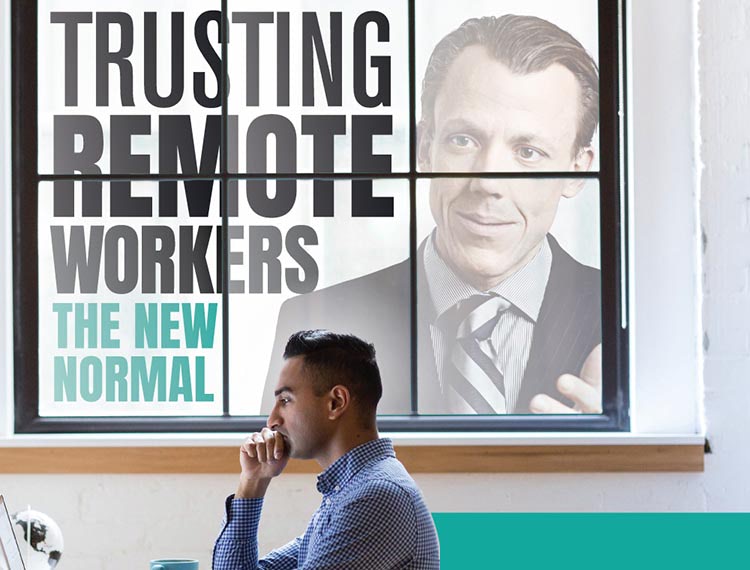Is it time to start trusting remote workers?

Remote working isn’t a new concept; in fact, 1 in 10 employees worked from home at least once per week in 2019. However, with COVID-19 on the rise, many employers have deemed remote work practices necessary to prevent the virus from spreading across teammates.
Giving employees the ability to work remotely opens them to an entirely new world of freedom. Here’s how you can focus on trust while your team engages in a virtual office dynamic.
Employees who work for organizations that value trust feel:
- 106% more energy at work,
- 76% more engaged in tasks,
- 74% lower stress levels,
- 40% less likelihood of burnout, and
- 29% higher overall life satisfaction.
However, with only 38% of remote workers having received no training on how to work from home, over half of CEOS feel their company’s growth is threatened by a lack of internal trust.
Employees need a clear direction, and leaders can provide the resources needed to meet their task goals.
Here are three ways employers can show trust in their employees while office-use is under suspension:
- Encourage Self-Direction – A 2014 study discovered that nearly half of employees would give up a 20% raise for greater control over how they work.
- Allow for Achievement – 76% reported their best work days are when they make progress toward their goals – as is allowed under self-paced remote work conditions. In fact, Harvard Business Review studies have shown that employers who allow their teams greater autonomy enhances their productivity.
- Be Transparent – A 2015 study found that workplace engagement improved with daily communication from team leaders.
The Value of Remote Work: Employers See Benefits Too
The additional work necessary to make your team more comfortable in their remote efforts can pay off. How so? Remote work makes the workplace more desirable. 77% would be more likely to accept a position if it offered the ability to at least occasionally work from home. In the eyes of the employee:
- 91% experience a better work-life balance when outside of the traditional office setting,
- 79% increase their productivity and focus when at home, and
- 78% feel reduced stress when working at home.
Virtual teams also provide access to a larger pool of potential employees. Giving employees the ability to work from home means employers can hire outside of normal commuting distance. This gives employers the opportunity to bring jobs and money to areas with skill shortages – widening their nets. A win-win for both employers and employees, employers can also find the best team members, regardless of where they’re based.
Employees Are Ready For the Future of Work
Many feel they will be healthier working from home and believe the new way to work will have a positive impact on their lives. In fact, 62% are ready – and trained – for the future of work.
Proving to lower overhead, increase productivity, and boost morale, it’s time to begin trusting your employees in their remote work efforts.
What steps are you taking to do so?













Responses